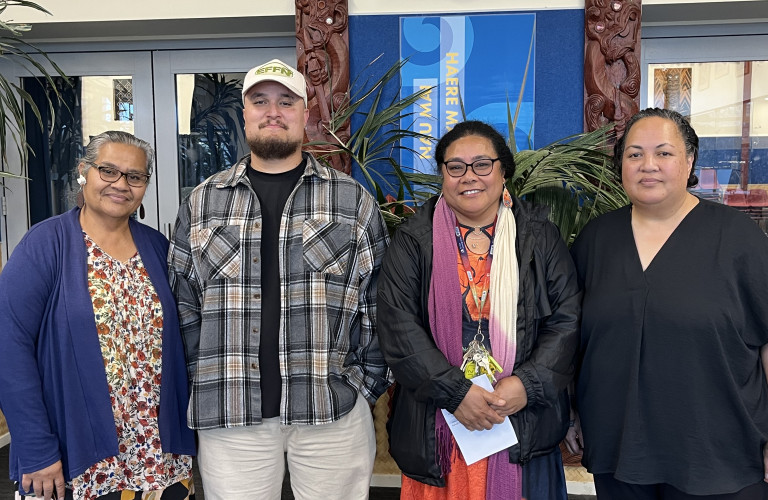Valuing the mahi
The community liaison role trial acknowledges the mahi that teachers do over and above their teaching and is greatly appreciated.

A bridge between the community and the school, is how Porirua College teacher Toa Mailo-Alexander describes the work he does outside of his teaching duties.
“If there are any issues that have arisen in the community, if there’s any strife or tension, we can quite easily step in and support whānau. We are from this community.”
Toa and several of his colleagues are participants in the community liaison role (CLR) trial, part of the current Secondary Teachers’ Collective Agreement. The CLR trial gives teachers a time and money allowance in recognition of the additional work they do with students, parents and whānau in their communities.
Opportunity to acknowledge mahi
“The main thing about the trial is that it has given the school an opportunity to acknowledge those of us who are already doing this mahi. It’s a motivator too – it motivates you to carry on.”
For example, Toa supports students who are leaving school. “I support them moving to external providers and I keep in contact with them to make sure they’re still going to course and they’re getting the support they need.
“So, although they’re off our roll I’m still engaging with and supporting those students. I check regularly to see if they have enough money to get to course, and what the plan is when they finish their course – that sort of thing.”
Toa’s colleague, Povalu Kelemete, says community liaison happens inside the school as well as in the wider community. “We do step in a lot to support our students and our colleagues, especially those teachers who are new to Porirua College and are not from Porirua.
“It’s a culture shock for them when they come to Porirua College. They want to be here so they call on us to help them support our students the best they can.”
Joy Tuitupou spends a significant amount of her time building up the confidence of students who have only been living in New Zealand for a few years, particularly supporting them with the literacy and numeracy corequisites which are now part of NCEA.
“We tell these students, if you are here from the island and you’ve only been in New Zealand two years and you don’t have the amount of English for literacy (co-requisite), remember that you’ve got 100% of your own language. You can communicate yourself - and you will achieve, with us to help you. It’s not just looking after them but building their trust and self-confidence.”
Opening the door to engagement
Maiava Vitoria Ape works mainly with Samoan parents of Porirua College students. “Being able to feel comfortable about engaging with the school is kind of a first step. Having a teacher who can speak the language and understand the culture is really important.”
Maiava also runs Talanoa Aka (conversations about learning) sessions with a local church. “This is a church I’m not even familiar with myself because I live on the other side of Porirua but being in this community and teaching and working here, it opens the door for that engagement to happen.
“There are a lot of people in that church whose kids come to this school, so it is really good to be able to have those conversations and allow them to feel comfortable about asking questions. To be a face of the school in the community so they know there is someone they can speak to in their own language and if we don’t know the answers we can find the answers for them.”
An interim report into the CLR trial, carried out by the Ministry of Education, says the allowance has provided important recognition for the mahi that kaiako were already doing.
“This formal acknowledgment has legitimised their expertise and increased the visibility of their work. Kaiako expressed that this recognition bestows mana on their community engagement efforts, empowering them to advocate for, and implement changes that benefit ākonga Māori and Pasifika students.”
In this year’s collective agreement negotiations, PPTA Te Wehengarua is claiming for the CLR allowances to be made available permanently to all eligible schools.
Last modified on Thursday, 5 June 2025 12:31
